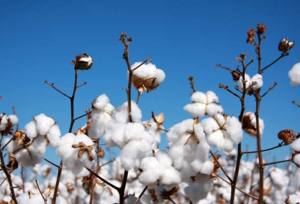Filed under: Martin Luther King, Organic, Organic Cotton, Organic Cotton Farming, Organically Grown, Politics, Reasons to Buy Organic | Tags: Dr. Martin Luther King, I Have a Dream, Memphis Sanitation Workers' Strike, MLK Day, organic, organic cotton, Organic Exchange, Organic Farmers, Promise of America, Textile Exchange
 In my last blog, I wrote about the “Promise of America.” Today, we honor a man who embodied the potential of how great America can be: Dr. Martin Luther King, Jr. Appealing to the moral decency in all of us, Dr. King showed us how change can occur without violence.
In my last blog, I wrote about the “Promise of America.” Today, we honor a man who embodied the potential of how great America can be: Dr. Martin Luther King, Jr. Appealing to the moral decency in all of us, Dr. King showed us how change can occur without violence.
Dr. King’s final speech was in support of the Memphis sanitation workers’ strike. The workers were being exposed to disease, making for very unsafe working conditions. Following King’s death, city officials resolved the strike, providing new protections to the city’s sanitation workers.
Being able to live and work in a healthy environment should be a basic human right. Just as the Memphis sanitation workers were subjected to poor working conditions, people around the world who work in conventional cotton production are subjected to hundreds of millions of pounds of pesticides each year, according to the Organic Exchange. Seven out of ten of these pesticides are on the EPA’s list of known, likely, or probable human carcinogens. By choosing organic cotton products, made without pesticides, we can make a difference in the quality of life for those farm workers.
Everyone should have the right to make healthy decisions, regardless of where they live or how much money they possess. Being able to choose organic products is an economic issue because they are generally more expensive. At Organically Grown, we try to provide our customers with fashionable organic cotton products that they can afford. We hope that as the demand for organic products grows, the price will continue to decrease – making them increasingly accessible to everyone.
Martin Luther King understood that environmental justice is social justice, and to truly celebrate his legacy, we need to listen to his words and work together towards his vision of a free, equal, and healthy America, and for that matter, the world.
BY BOB STEIN, CO-FOUNDER OF ORGANICALLY GROWN
Filed under: Cotton Articles, Cotton Industry, Organic, Organic Cotton, Organic Cotton Farming, Organically Grown | Tags: BCI, Better Cotton, Better Cotton Initiative, Genetically Modified Organisms, Genetically Modified Seeds, GMOs, organic, Organic Apparel, organic clothing, organic cotton, Organic Exchange, Textile Exchange
You may come across the Better Cotton Initiative. Reportedly, prominent companies are jumping on the Better Cotton Initiative bandwagon. According to the following link, http://assets.wwf.ch/downloads/qa_shortfacts_cotton.pdf, dated August 2009, the Better Cotton Initiative, at this time, included the use of cotton grown from genetically modified seeds. One can argue the benefits and detriments of genetically modified seeds.
At Organically Grown, we have nothing to do with the Better Cotton Initiative. When the BCI standard is organic, we will support their efforts. We are committed to providing our customers with 100% certified organic cotton, made without the use of pesticides and GMOs.
BY BOB STEIN, CO-FOUNDER OF ORGANICALLY GROWN
Filed under: Cotton Industry, Organic Cotton, Organic Cotton Farming, Organically Grown, Reasons to Buy Organic, Suite 101
 As if we didn’t have enough reasons to love the softness of eco friendly organic cotton, Suite 101’s Kara Smith has come up with NEW reasons to love organic cotton. Smith encourages readers to continue to support the efforts of organic cotton farmers by regularly purchasing organic products. The article is spurred on by the fact that the organic cotton market dipped between 2007 and 2009, but has increased in 2010. It is essential for the organic cotton farmers that this upward trend in buying continue to increase.
As if we didn’t have enough reasons to love the softness of eco friendly organic cotton, Suite 101’s Kara Smith has come up with NEW reasons to love organic cotton. Smith encourages readers to continue to support the efforts of organic cotton farmers by regularly purchasing organic products. The article is spurred on by the fact that the organic cotton market dipped between 2007 and 2009, but has increased in 2010. It is essential for the organic cotton farmers that this upward trend in buying continue to increase.
Smith also notes that there are statistics which show that having a baby or a young child increased the awareness of buying organic. Parents who might not buy organic for themselves want the best, healthiest options for their children, and do not want them dressed in clothes that may have been sprayed with harsh chemicals and pesticides. Smith writes, “It might be safe to say that if the Earth were a baby, most of the crops it’d be wrapped in would be organic.”
Thankfully, by Summer 2010, organic cotton in California has reached a market price which makes it profitable for farmers to grow or switch to organic cotton. As long as customers continue to purchase organic cotton products, the demand will make sure that the farmers are able to economically produce organic cotton.
In conclusion, Smith reminds readers of several facts about organic cotton:
-Organic fruit and vegetables are higher in antioxidants – somewhere between 19 and 58% higher.
-Cotton farming uses approximately 3 billion dollars of pesticide which is poured onto the planet each year.
-Organic cotton is farmed without pesticides and are therefore free from residues which can actually stay in the cotton even after washing.
-Groundwater contaminated with pesticide residues does seep into drinking water and is not ‘washed out’ in treatment plants as there is no found treatment, yet, that can eliminate these residues.
BY EMILY LAIRD, DIRECTOR OF NEW MEDIA, ORGANICALLY GROWN